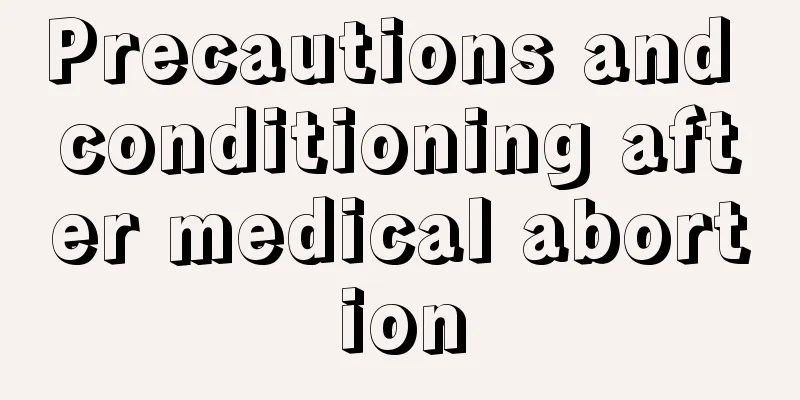How to effectively treat endometritis?

|
The female uterus is one of the reproductive organs. The uterus is the place where the baby is conceived. Therefore, it is conceivable that the health of the uterus is also closely related to the health of the baby. The occurrence of endometritis is a situation that many women may encounter, which affects the normal lives of many women. So if women have endometritis, how should they treat it more effectively? Acute endometritis mainly occurs after delivery, abortion or intrauterine surgery, especially informal artificial abortion. The pathogens include Escherichia coli, Staphylococcus aureus, Streptococcus aureus, etc. The onset is rapid and the patient is afraid of cold. Lower abdominal pain, a feeling of falling, and a large amount of purulent secretions flowing out of the vagina. If the condition is not controlled in time, the inflammation may continue to spread upward and develop into acute salpingitis, oophoritis or pelvic inflammatory disease. If the treatment is not thorough, the condition may worsen over time and develop into chronic endometritis. When the physiological defense function of the female reproductive system is destroyed and the body's resistance is low, the inflammation caused by bacteria invading the endometrium is called endometritis. It is divided into acute endometritis and chronic endometritis. Chronic inflammation of the endometrium is called chronic endometritis. It can be transformed from acute endometritis; it can also be caused by the spread of long-term salpingitis or severe cervicitis; intrauterine contraceptive devices, a small amount of placenta residue after delivery or abortion, and incomplete restoration of the placental attachment can also lead to chronic endometritis; in postmenopausal women, due to the decrease in estrogen levels in the body, the endometrium and vaginal endometrium become thin and easily invaded by bacteria, resulting in chronic inflammation; in addition, submucosal uterine fibroids and mucosal polyps can also cause chronic inflammation of the endometrium. The main symptoms of chronic endometritis are irregular menstruation or uterine bleeding; lower abdominal pain or distension, increased leucorrhea, fever, etc. In addition, the uterus is enlarged and tender, and the tissues around the uterus are thickened and tender. If an elderly person suffers from chronic endometritis, vaginal bleeding will occur again after menopause, and the leucorrhea will increase, become thinner and bloody. When treating chronic endometritis, the first thing to do is to see if there are any causing factors, such as retained placenta, intrauterine contraceptive device, etc. If these causes are removed, chronic endometritis will heal quickly. With proper treatment, most patients with chronic endometritis can be cured. You must have confidence in your recovery and persist in treatment, otherwise you will give up halfway. The occurrence of endometritis is closely related to daily personal habits. Therefore, women must pay attention to the cleanliness and hygiene of their personal private parts. Change your underwear every day and wash your vulva before going to bed. Maintaining good hygiene can prevent many gynecological diseases. |
<<: What is the cause of chronic endometritis?
>>: Why does a woman feel pain and itching in her vagina?
Recommend
What are the causes of abdominal bloating in early pregnancy?
One of the most common phenomena during pregnancy...
What should I do if I have no embryo for two months?
If your menstrual periods are usually regular, bu...
Can I eat vegetables after abortion?
You can eat green vegetables after an abortion be...
Do I need to hold my urine to check my ovarian follicles?
Nowadays, many women test their follicles during ...
Girls don't mind physical contact
When it comes to emotions, women tend to be more ...
What effect does hypothyroidism have on menstruation?
People often talk about hypothyroidism, the full ...
Can the elevator still be used during a power outage? What should I do if it is too hot to sleep during a power outage?
In summer, electricity consumption is high and po...
How to locate the tablet? How to record the screen on the tablet
Tablet computers are both convenient and have the...
What kind of fungi are used to make rice wine? How many days should you cover the rice wine in summer?
Rice wine is a sweet rice wine made by mixing ste...
Benefits of eating whole deer pills for women
Everyone knows that Quanlu Pills have the effects...
What are the benefits of eating an apple every day for women
In addition to traditional nutrients and dietary ...
What should I check when I go to the hospital for dysmenorrhea?
Menstrual pain is a very troublesome thing for ma...
6 signs of healthy kidneys, how many do you meet?
1. No swelling in the morning Healthy people usua...
Why do I feel particularly thirsty during confinement?
For most women, having a baby is a relatively imp...









